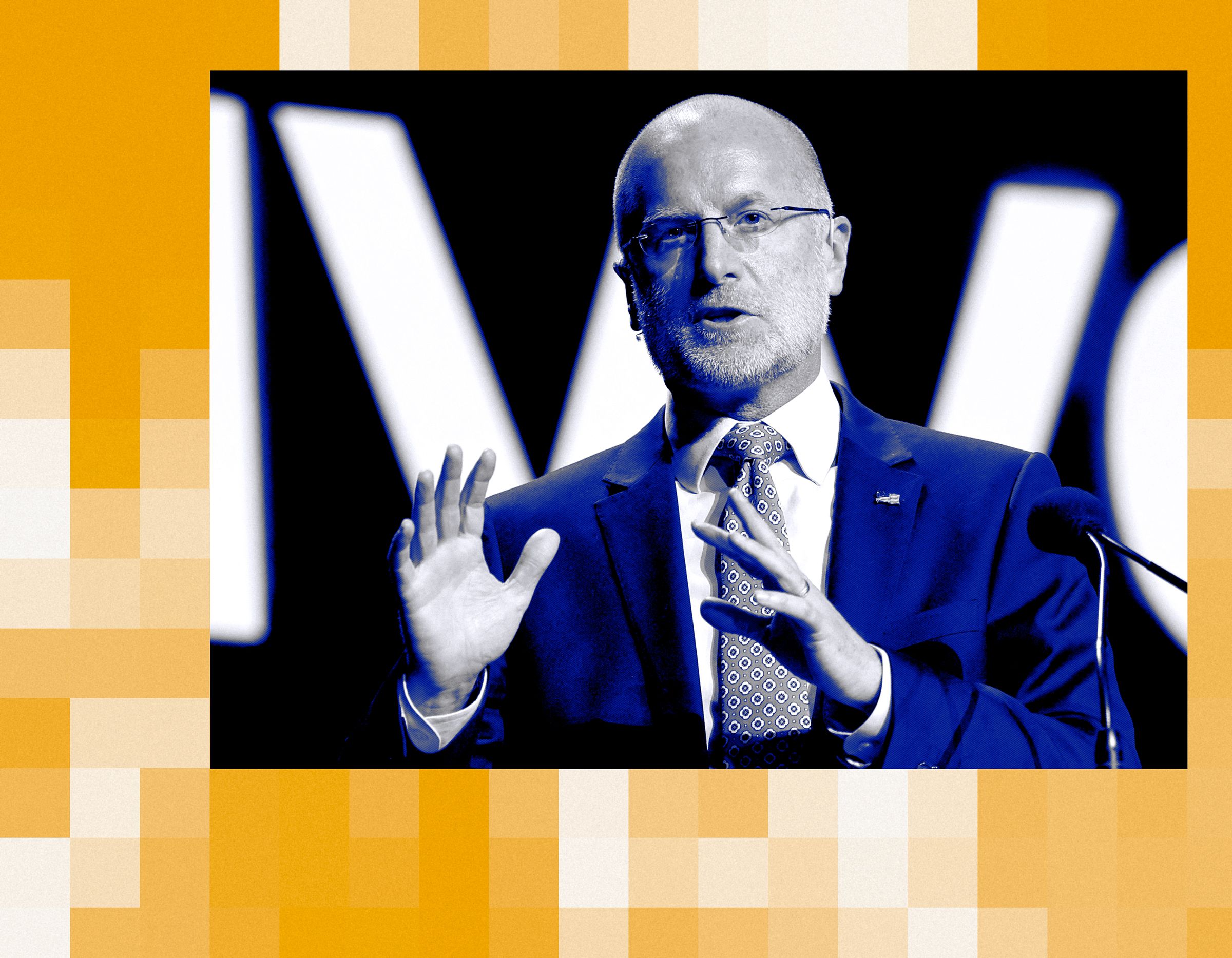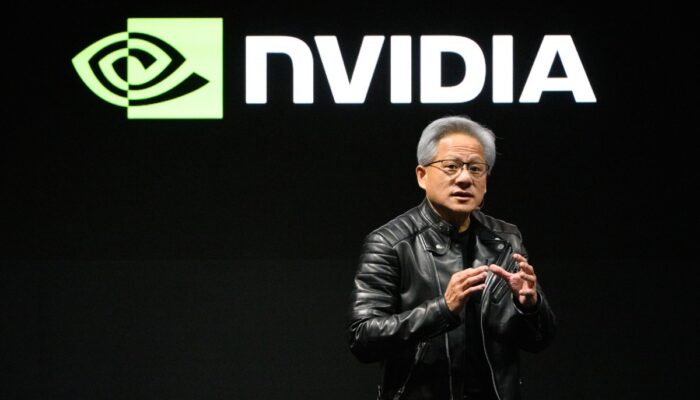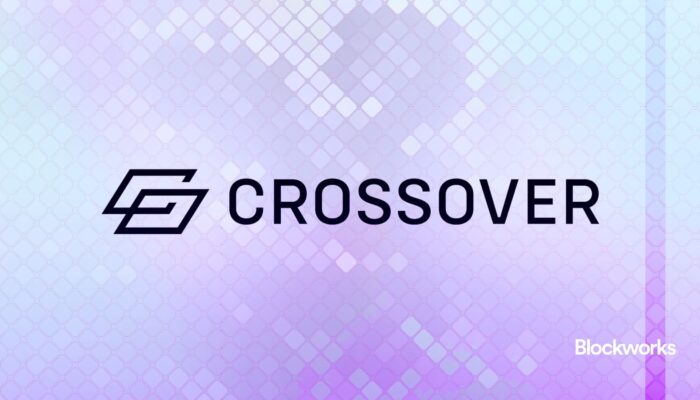The formal agenda of the Federal Communications Commission’s open meeting this week seemed well in line with its normal wonky pursuits. There were items on satellite broadband, a licensing framework for the lower 37-gigahertz spectrum, and newly proposed rules that could help block robocalls. In the practiced government kabuki of these events, commissioners spoke, proposals were voted on unanimously, and chairman Brendan Carr, appointed by Donald Trump, ran things smoothly, though his demeanor was rather boisterous. An observer might conclude that despite the new administration, it was business as usual at the FCC.
Then came the regular press Q&A. Ever so politely, the beat journalists probed Carr about recent moves he’d made—like using the power of his role to investigate news organizations for airing stories that just happen to make Donald Trump unhappy. Notably, Carr has launched a probe into how CBS edited a 60 Minutes interview of then candidate Kamala Harris. Despite no evidence of journalistic malpractice, Trump demanded that the network should “lose its license” over the story. He also recommended other networks lose their affiliates “because they are just as corrupt as CBS—maybe even WORSE!”
This was before Trump came back to power, and Jessica Rosenworcel, then chair of the FCC, brushed it off. She noted that the agency didn’t revoke licenses because a politician disliked how he was covered. Before Rosenworcel left office, the complaint was denied. But after Trump installed Carr as FCC chair in late January, he pulled the case out of the dustbin and started an investigation. So much for following Trump’s January 20 executive order demanding “no Federal Government officer, employee, or agent engages in or facilitates any conduct that would unconstitutionally abridge the free speech of any American citizen.”
Carr’s response to questions about CBS at the open meeting was: “All options remain on the table,” even the “death penalty” of the network’s broadcast license. He also indicated that NBC and the other networks that have covered the case of the legal immigrant mistakenly deported to an El Salvadorian prison might be in similar trouble. His justification was that since broadcast outlets have exclusive access to their slice of public airwaves, their content must be in the public interest. If they don’t like that, he said, they can be podcasters.
The trouble with this—well there are a lot of troubles with this—is that it’s obvious that “the public interest” here is being interpreted as “stuff Donald Trump likes.” While the FCC can issue sanctions about “news distortion,” that term refers to egregious and consciously fraudulent reporting. The CBS case and the network coverage of deportations aren’t even in the same universe as that kind of malfeasance. “This is one of the tools that the administration is using to censor and control the news media, and to punish anyone that dares to speak against our government,” the remaining Democrat on the commission, Anna Gomez, told me this week.
It’s not only Democrats who are alarmed by this. In March, far-right crusader Grover Norquist—the guy who once said he wanted to drown government in a bathtub—was among the ultra-conservatives who signed a letter begging Carr to dismiss the case, saying it would “constitute regulatory overreach and advance precedent that can be weaponized by future FCCs.” Dude, it’s the current FCC we have to worry about! When Carr tried to explain his complaints about news coverage, he said they were all about empowering local news as opposed to big networks. But Gomez told me that the stations themselves are spooked. “I’ve spoken to local broadcasters throughout the country, and they’re nervous that they’re going to get dragged before the FCC based on the content of their coverage,” she says.
How did we get here? Carr’s background indicates that he might have been a straightforward leader of the agency. After several years as a legal adviser, he became a commissioner in 2017 and Joe Biden reappointed him in 2023. (Three of the five FCC commissioners, including the chair, are to be from the president’s party.) As a lifelong Republican—his father was once one of Nixon’s lawyers—he would be expected to champion conservative stances, like fighting net neutrality and sucking up to big telecom interests. His views on government regulating content seemed in sync with the First Amendment: After two House Democrats complained about Fox News after the January 6 insurrection, he released a statement saying, in part, “A newsroom’s decision about what stories to cover and how to frame them should be beyond the reach of any government official, not targeted by them.”
But even before Trump elevated him to the chairmanship in January, Carr was veering into wing-nut territory. “When I was at the White House, he was like a thorn, always trying to make all kinds of weird MAGA moves,” says Tim Wu, who was Biden’s special assistant in tech policy. “We refused to have anything to do with him, because he was playing by a different rule book. He was less like a commissioner and more a random podcaster.” One of those MAGA moves was writing the communications chapter in the notorious Project 2025 playbook that turned out to be the road map the White House is using to dismantle the government, though the chapter said nothing about regulating “news distortion.” As chair, Carr must now be listened to, especially as he veers into the censorship lane.
One irony of the Carr strategy is that he sits atop the FCC when the agency’s literal powers are weaker than ever. In February, Trump signed an executive order reining in independent agencies like the FCC—essentially making himself a supercommissioner with ultimate authority. Also, a recent Fifth Circuit court decision seemingly stripped away the FCC’s power to unilaterally impose fines. (Carr says that the reasoning was faulty, and the agency is appealing.)
Despite these limitations, Carr is still dangerous. The mere act of investigating—or even criticizing—a media company’s actions, whether they involve objective journalism or a DEI policy, can have a chilling effect. (Carr is looking into Disney’s efforts to promote gender and racial equity, which he sees as another reason to sanction media companies.) “While there are no formal decisions of the FCC, Carr is using his powers of intimidation and coercion,” says Thomas Wheeler, who was FCC chair during Obama’s second term. Morality and justice aside, it’s an effective strategy. “Point one, there’s no vehicle to push back, because there’s no final decision you can take to court. And point two is that it’s not necessarily healthy to poke your regulator in the eye.”
Jonathan Nuechterlein, a former general counsel at the FTC, writing about another Carr overstep— he questioned Google because its YouTube TV service doesn’t carry the faith-based Great American Family Network—opined that Carr doesn’t need to make rulings or invoke fines to make a difference: “Jawboning” alone can be akin to enforcement. “A jawboning target cannot simply call the FCC’s bluff,” he wrote, “because the Commission, and the Administration as a whole, enjoy great discretion to kneecap any disobedient company down the road in unrelated contexts, ranging from merger-approval proceedings to litigation settlements to the award of government benefits.”
The CBS case is proof of that. The network is a subsidiary of Paramount, which is seeking government approval of a multibillion-dollar merger with Skydance, a media company controlled by David Ellison. When Trump personally sued Paramount for a ridiculously high $20 billion due to CBS’s editing, the company had an incentive to go into settlement talks—and apparently, impose extra oversight on 60 Minutes. This led the show’s longtime leader to resign. When anchor Scott Pelley announced the change on the air, he specifically cited the Paramount merger as a motivator for the oversight. The assumed endgame: a settlement in Trump’s favor, whereupon the president would order an end to the FCC investigation. At the April open meeting, Carr ducked a question about whether he would drop the issue if Trump ordered it.
People expect presidents to rail about their press critics. Using regulatory bodies to engage in government censorship—didn’t I hear about an executive order banning that?— is something quite different. It’s straight out of the authoritarian handbook, and must be called out strongly. That’s what led a bipartisan group of former FCC commissioners to file a letter on March 26, objecting to the CBS investigation. Failure to dismiss the complaint, they wrote, “would suggest that the Commission has been transformed into a tool of White House-driven speech suppression.”
Behind the strong language of the letter, however, is a tale of submission. According to Wheeler, the call to sign the letter went out to all the former commissioners since the Bush years, including six chairs. “Out of those 24, we could only get 5 to sign that filing, and only two chairmen—because of the fear of retribution,” he says. Carr’s blustery censorship may be less alarming than the silence of those who stand by as our rights erode.



